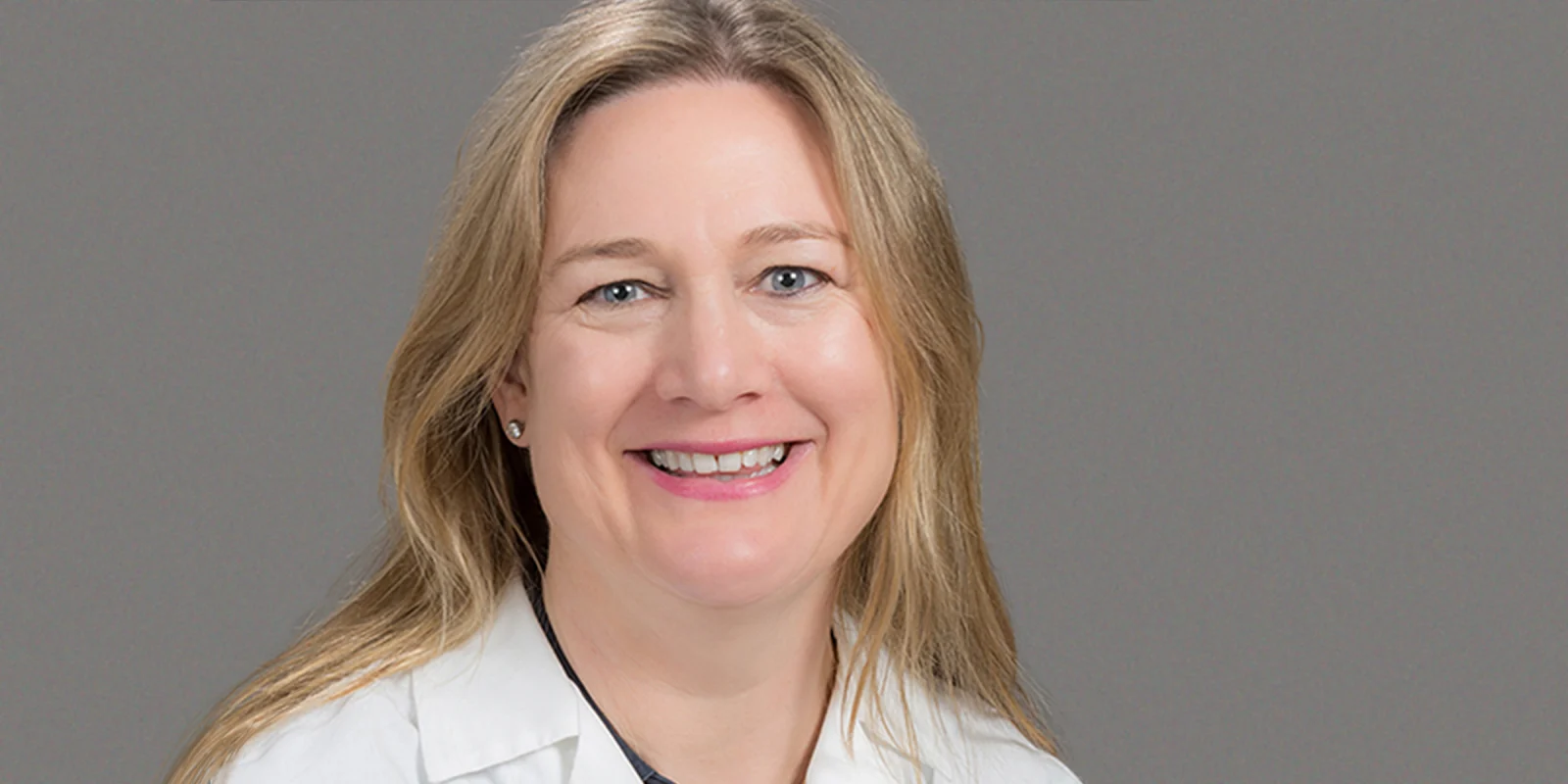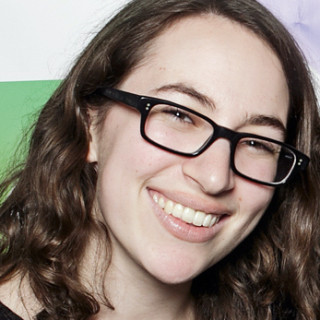Barbara Jung, MD, is many things: a researcher, a physician, and now, the president of the American Gastroenterological Association (AGA). Born into a family of physicians, including a grandfather who “took care of his whole village” in Germany, Dr. Jung’s entrée into medicine was both nature and nurture. Since becoming a practicing gastroenterologist, she has built an impressive resume as past president of the Gastroenterology Research Group and division chief of gastroenterology and hepatology at the University of Illinois Chicago. Currently, she serves as the first woman Robert G. Petersdorf professor and chair of internal medicine at the University of Washington. Doximity recently sat down with Dr. Jung to discuss her love for gastroenterology, her thoughts on the challenges facing the field, and the role the AGA can play in bringing about a more patient- and physician-centered future.
Doximity: How did you choose to become a gastroenterologist?
Barbara Jung, MD: I just love GI. I think GI is wonderful. You take care of the young and the old, the acute and the chronic. There’s procedural, there's thinking. It's everything. And I've always felt — that's why I chose it — that the gastroenterologists were happy people. They seem genuinely happy and fun to be around. And that's why I've become a gastroenterologist with pride.
Dox: How has gastroenterology evolved since you started in medicine?
BJ: Even in my time, we've come a long way. When I started training, it was just the beginning of colonoscopies, which of course has completely revolutionized the field. However, I'm a little bit surprised that it hasn't moved forward more quickly. Over the last couple of decades, we still rely a lot on this test, and it's a very, very good test. And we enjoy performing the test and we enjoy saving lives. What I do think will come much more [in the future] is the use of AI and other systems to help us do our work faster, better, and hopefully easier. I see that, and I also see that we need continuous physician engagement to make those tools work for us and our patients.
Dox: What do you see as your role as AGA president in pushing that future forward?
BJ: [At AGA] we've done some very active learning. The board is a learning board, and we are really learning about AI. We also have a very active community of members who are deeply entrenched in AI, both the technology of it and the application. And so [our work is about] really liaising with our committees who work on this. We're actually working on a tech summit where we get venture capitalists together with people who have those ideas. … And we’re investing; we have an AGA opportunity fund where we invest in those nascent companies to move innovation forward. So that's one big piece of the AGA.
The other big piece is really taking care of our members. These are the practicing gastroenterologists; they could be in a variety of settings. One big thing we've taken on under my leadership is to advocate for less prior authorization and less paperwork so we can just get to taking care of the patients.
… We also continue to help with funding for research — we have our own publications, we publish information articles, we do guidelines. So we are really part of creating information and also disseminating information.
Dox: You mentioned AI earlier. If you could use AI to take over any daily task in your practice, what would that be?
BJ: Writing notes. I think it's top of mind for many, many physicians, the fact that they spend lots of time with the computer and not with the patient. And it’s even beyond writing notes. All the mouse clicks, all the ordering, all the paperwork — if that could be automated, let's say you could sit at the bedside and verbally order meds, verbally arrange for discharge, really just that ease from what we are thinking to execution — if AI could do that I think that would be really helpful. And it could revolutionize the amount of time we can spend with our patients.
Dox: If you had an extra hour in the day, how would you spend it?
BJ: I would spend that extra time slowing down and processing. I feel we are bombarded with external stimuli and we often don't have enough time to think about: What happened in the day? What's going on in the world right now? How am I feeling? What did I hear in this meeting? There's a lot of just action-oriented, reflexive [behaviors]. So if I had an extra hour — and I sometimes do this now, I just get up earlier because it's quiet — I think I would spend more time not doing anything.
Dox: What are the top three things you most want to see improved or changed in medicine, and in gastroenterology specifically?
BJ: I would like everyone to have access to care. We have a huge issue with access. We don't have enough gastroenterologists, and our coverage is really spotty. Some areas have good coverage and many areas do not. It really pains me to see the challenges we have with access, which are everywhere now. They're in the big cities as well as rural areas.
The [second] one is I would like physicians to return to feeling joyful about their work. The work we do is very, very important. It’s very gratifying to help people. Given all the other demands, that sometimes feels like it's gotten away from us. I think a North Star is to get people back to a point where they can really get fulfillment out of what they do. And this speaks a little bit to one of the big topics, which is burnout, and lack of feeling that your children should be doctors.
And the [third] one is continuing to think about how to keep our population healthier. We're looking down a barrel of no access to good food, lack of exercise opportunities, no public transportation. We've just gone down that road so far. It is alarming to see children growing up and not having a healthy life ahead of them.
Dox: On the flip side, can you talk a bit about something you're excited about that’s coming down the pike?
BJ: One thing that I'm excited about is thinking about the workforce of the future. The new generation is very passionate, they're very interested in making a difference. They’re great advocates and they care a lot about their lives and other people's lives. We have a whole generation with a lot of enthusiasm coming up. And they see things differently; [they know] things have to change. They're very astute learners. They have certain expectations.
Dox: It seems like you're thinking about all of these issues that go beyond your daily practice. And so this seems to go nicely with your position as a leader. Can you tell our audience how you went from being a physician to taking on a more leadership role?
BJ: I was always the kid who had the other kids organize the crayons, so it happened early on and I had to over time sort of refine those skills to make that socially compatible. But I've always been sitting there thinking, How can we do this better? How can we work better together? What are the challenges? How can we make this work? So I enjoy organizing and organizing around themes; I love strategy. So [leadership] has always been an interest of mine. Starting in fellowship, I would be the one who made the schedule. I organized a learning rounds afterward where we went over a textbook. And so when these [career] opportunities occurred, I was interested, I took them on.
I've always been interested in impact. I've been interested in my day-to-day impact with my patients. That's why I also do research because I want to push the envelope and have impact that is delayed and will happen later. … And so one thing has just led to another and I just am thrilled that I can combine all these things in my everyday.
Dox: What are you most proud of from your career?
BJ: Feeling that I made a difference in people's lives. Patients or students or anyone. And it's small moments. You can ask yourself, How do you measure success? How do you measure impact? But I'll just say, I got a note the other day from someone who was a student of mine over two decades ago, and they said, ‘We were on rounds, you were an intern, I was a student. And I just want to tell you that I found you and congratulations on your role, but also, what you said to me those days on those rounds really had an impact on me, and I just wanted to let you know.’ And that alone, that's worth it. And the message I want to relay here too is you don't have to be the president of AGA, you don't have to be a division head to have impact. [You can be] very impactful in your community, as a leader of your family, as a leader of your medical team or even as a peer. So I think just supporting people and working together with others, impacting them — that gives me the greatest joy.
This interview has been lightly edited for length and clarity.






